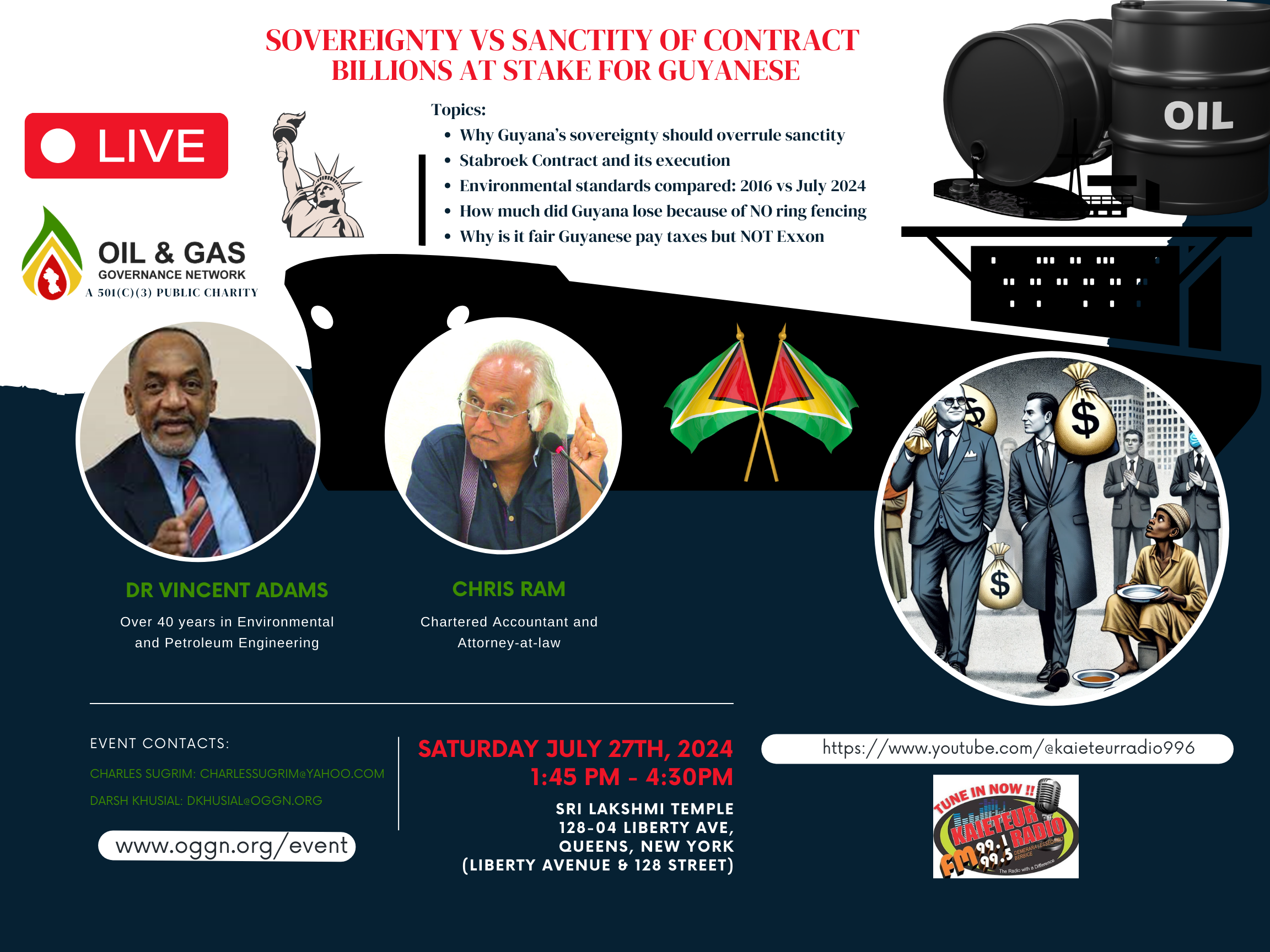
Opinion

Moon ah run till daylight ketch am
By Stabroek News August 16, 2022 Dear Editor, Please allow me the opportunity to respond to the letter dated August 14, 2022 written by Joel Bhagwandin, Financial Analyst, captioned, “The points raised by Dr. Hunte were discussed more comprehensively in another report.” Having read the Financial Analyst response, I have one comment that is best…
The ball is now in ExxonMobil’s court
Dear Editor, In a letter to Stabroek News published on August 6, 2022, Ms. Janelle Persaud, writing in her capacity as Media and Communications Manager for ExxonMobil Guyana, insisted that “Rod Henson, as the former President of ExxonMobil Guyana, never signed any document with Dr. Adams, in his capacity as a prior Executive Director of…
Bulkan calls for more detailed study of marine environment where Exxon operates
The impact assessment of the cumulative effects for Exxon’s planned 35 Multiwell Exploration and Appraisal (E&A) Drilling Programme should fill major gaps of the four existing EIAs including a much more detailed study of the marine environment than was previously done, says environmentalist Janette Bulkan. On July 19th, the Environmental Protection Agency (EPA) announced that…
The Court Records: ATTORNEY GENERAL OF GUYANA AND EXXON VS GLENN LALL
https://www.oggn.org/attorney-general-of-guyana-and-exxon-vs-glenn-lall/
Proof that Dr Adams was right all along on liability coverage
Originally from: https://www.stabroeknews.com/2019/02/24/news/guyana/exxon-getting-epa-approval-for-liza-phase-2/ Start of original publication from Stabroek News (comments by OGGN in at the bottom of article, in purple) February 24, 2019 ExxonMobil is expected to receive its permit from the Environmental Protection Agency (EPA) this week for its Liza Phase 2 operations in the Stabroek Block, offshore Guyana, after assuring the…
Both Henson and Routledge signed off the relevant documents committing EEGPL and parent companies to unlimited/full liability coverage
I was not surprised that Exxon’s response to my letter of August 2, 2022, would entail the same old fancy mumbo jumbo talking points through their PR that mean nothing to the Guyanese people and only meant for kerfuffle. Since they don’t have any substance, their game is that as soon as anyone exposes their…
Esso Exploration’s letter appears to contain misleading statements
On Saturday August 6th, 2022 the Communications Manager of Esso Exploration wrote a letter that appeared in the major Guyanese newspapers in which she made a number of points with regard to the EPA permits. However, it appears this letter had misleading statements. In the letter the Esso Exploration representative states, “Production rates on the…
Exxon must begin treating Guyana with respect, renegotiating the contract would be a good start
I read with disgust and resentment, news media reports of recent statements made by Exxon’s Production Manager, Mr. Mike Ryan who carries the same tune as his boss, Mr. Routledge. There seems to be no end to the imperious and disrespectful behaviour of these two gentlemen towards the people of Guyana believing us to be…






